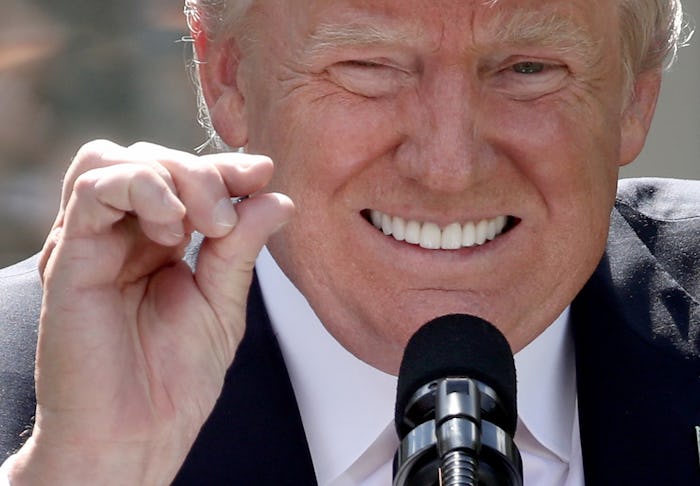Life

Will Ditching The Paris Deal Wreck Kids' Health?
The ramifications of President Donald Trump's decision to reverse the United States' pioneering role in reducing greenhouse gas emissions to combat global warming will reverberate, quite possibly, until the end of the world. In 2015, President Barack Obama negotiated the Paris climate accord with almost every other country on the planet, making a pledge to slash those emissions for the good of the environment, the economy, and to give the future a chance. But now, Trump compelling the nation to renege on that commitment jeopardizes not just the country's very position as a respected world super power, but the very physical wellbeing of its people. Most strikingly, withdrawing from the Paris agreement could affect kids' health if we continue along the trajectory Trump has set.
The Paris agreement is simple yet monumental. All signees — every country except Nicaragua and Syria — set their own goals for reducing greenhouse gas emissions with the goal of preventing the global temperature from exceeding 3.6 degrees Fahrenheit over pre-industrial levels. (Nicaragua wouldn't sign the agreement because officials believed the accord did not go far enough, and Syria, under sanctions at the time, couldn't make it to the meeting at all.) The United States' contribution would have accounted for 21 percent of all avoided emissions by 2030.
That may all sound like meaningless science-speak, but the bottom line is this: It's an effort to fend off the awful, inevitable consequences of global warming, like rising sea levels, more droughts and floods, diminishing availability of fresh water, stronger storms, and prompting the spread of diseases like malaria and more.
The onset of these dire scenarios is exactly why Mary Pittman, president and CEO of the Public Health Institute, said that the president's decision is the "most important public health issue of our time," according to The Los Angeles Times. Another expert, national president and CEO of the American Lung Association Harold P. Wimmer, similarly condemned the move:
Climate change is already harming the health of people in the United States and worldwide through degraded air quality, heat waves, droughts, extreme storms, disease outbreaks, and more. Unchecked climate change is a global health crisis that threatens to reverse decades of health gains worldwide, with serious consequences for our children and generations to come.
The denouncement of Trump's move by public health professionals (not to mention corporate giants, albeit for different reasons) is 100 percent unsurprising. The World Health Organization predicts that climate change will soon be responsible for an additional 250,000 deaths worldwide — and because the projection is for the years between 2030 and 2050, much of the burden of this potential calamity falls on the world's current children and those who aren't even born yet.
The reasons for the projected deaths and health problems are tied to global warming in so many ways. Rising temperatures will broaden the geographic areas where ticks and other vectors can survive and thrive, leading to more health problems like Lyme disease and West Nile virus. Rising temperatures also put more people at risk for health stroke and respiratory problems, while declining air quality could precipitate diminished lung function and increase hospital visits for asthma. The uptick in flooding very well could increase people's exposure to bacteria that cause disease.
The list goes on.
Trump says he believes that the Paris climate agreement will protect U.S. businesses and taxpayers, but those taxpayers' children won't have much to thank him for if they're suffering, physically, in the decades to come. His exit won't take effects until around the end of his four-year term in office, though, meaning that rectifying this is bound to emerge as a front-and-center issue during the 2020 presidential campaign, as The Los Angeles Times' Evan Halper and Alexandra Zavis pointed out.